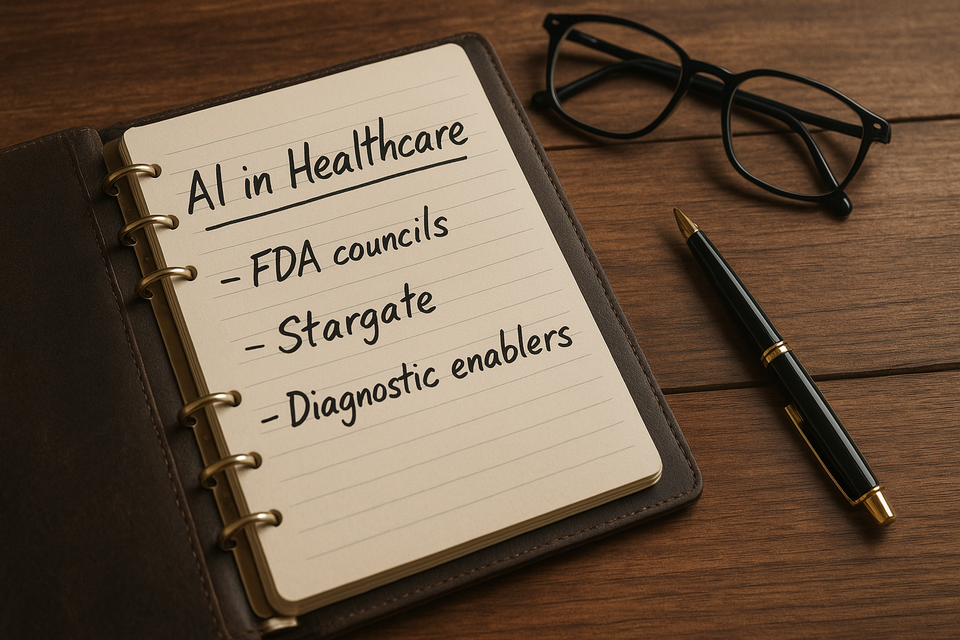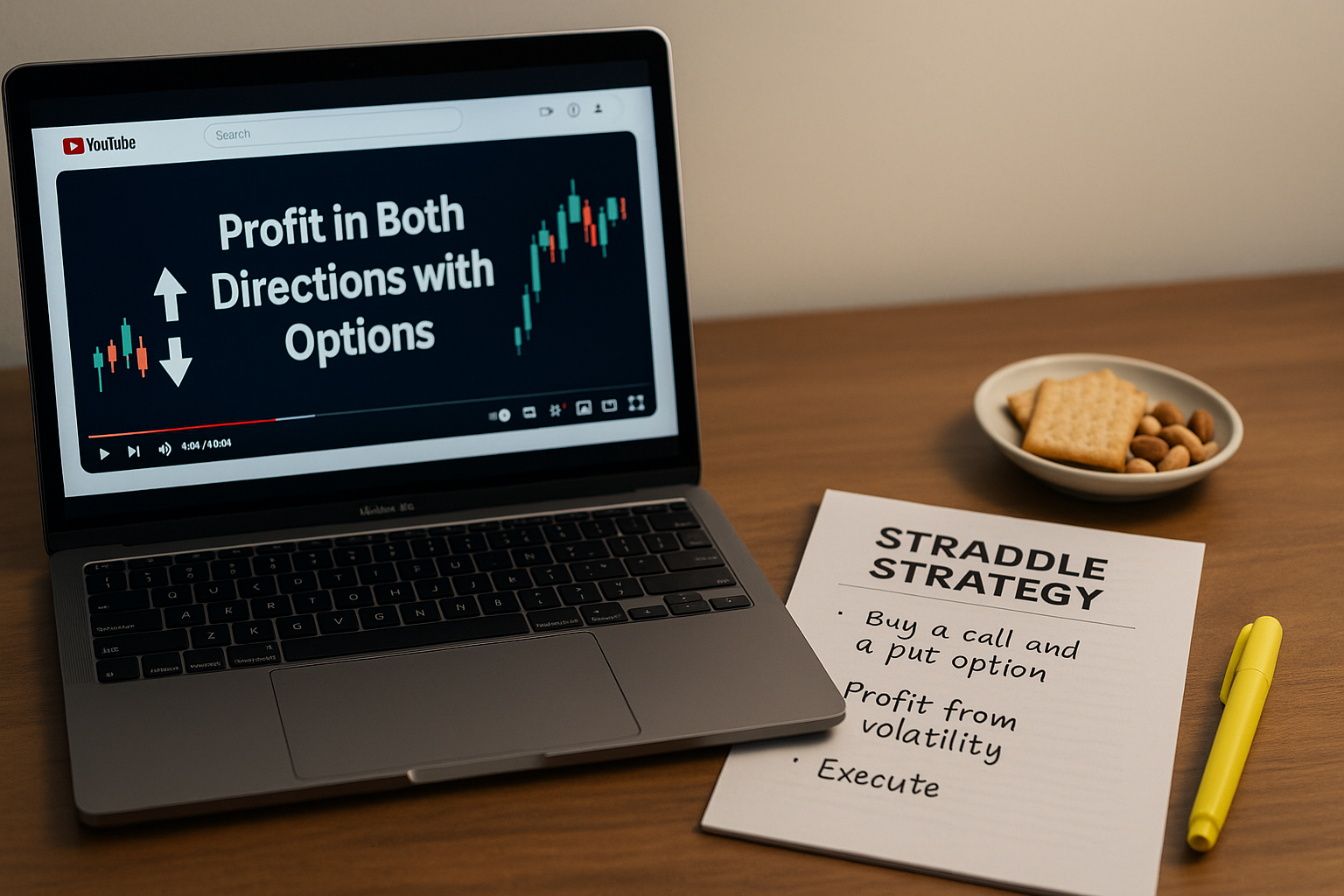The Healthcare-AI Story Few Investors Are Watching

Behind the scenes, two forces have quietly started reshaping the future of healthcare investing
Foundations are being laid
Some shifts make noise.
Others build momentum quietly, brick by brick.
Over the past six months, two such shifts have been unfolding in the background—
and together, they’re setting the stage for a transformation in how we invest in healthcare.
What’s Been Happening
Earlier this year, the FDA launched a coordinated effort to bring AI into the heart of how it works.
It created two internal councils—one to guide how the agency uses AI, another to evaluate AI-driven medical products more consistently.
It also introduced Elsa, a generative AI tool that supports scientific review.
After a successful pilot in May, Elsa was rolled out across all departments by June.
Separately, a coalition of tech giants—OpenAI, Oracle, SoftBank, and others—announced Stargate, a long-term initiative to build AI infrastructure across the U.S.
Their stated ambition? To enable breakthroughs in areas like early cancer detection and drug discovery.
The connection between these two developments is subtle—but important.
Because while they operate in different spheres, both are laying groundwork for what healthcare could become.
Why These Shifts Deserve Your Focus
The healthcare–AI story isn’t new.
But in 2025, it moved from hype to infrastructure.
The FDA’s work may sound procedural, but it’s a major unlock.
Faster and clearer evaluations lower risk—not just for patients, but for investors in early-stage diagnostics and medtech.
Meanwhile, Stargate shows that Big Tech isn’t just experimenting with healthcare—it’s committing capital, compute, and strategy.
And when infrastructure gets built, the rest tends to follow.
What to Watch From Here
- Track the FDA’s evolving review process
If review times improve or become more transparent, it could reprice select healthcare AI firms. - Look beyond the headline players
Cloud providers, medical data platforms, and regulatory tech firms may benefit more steadily than splashy AI names. - Be selective with early-stage exposure
Many AI-health companies still lack clear revenue models. Focus on those with growing adoption or hospital partnerships. - Balance exposure with optionality
Anchor with established firms enabling the shift—like Microsoft or Oracle—and explore modest positions in curated AI-health ETFs or diagnostics innovators.
A Question to Sit With
Are you investing in what's already visible—or in the foundations being laid beneath it?
You Don’t Have to Chase the Story
These developments may not be breaking news.
But they’re part of a much bigger narrative that’s still in its early innings.
You don’t need to rush.
You just need to recognize when something has quietly moved from possibility to process.
Because that’s when lasting opportunities start to take shape.
– FDA policy updates on AI-assisted reviews
– Medtech firms citing regulatory clarity as a tailwind
– Infrastructure spending tied to healthcare AI platforms
– ETF inflows into health innovation (e.g., ARKG, EDOC)
– Partnerships between cloud providers and diagnostics firms
Strategies Worth Watching
What If You Could Profit — Even Without Picking a Direction?

Most investors spend hours guessing whether a stock will go up or down.
But what if you could build a position that wins either way?
This video introduces a simple options strategy called a straddle — used by pros when big price moves are expected but direction is uncertain.
It’s a surprisingly practical tool for earnings season, volatile stocks, or just general market noise.
Here’s what you’ll learn:
✅ What a straddle is — and why it works in uncertain markets
✅ When to use it (hint: low implied volatility is your friend)
✅ How a real Tesla trade played out before earnings
✅ What most traders misunderstand about IV and timing
🎥 Watch the full breakdown here
If this kind of strategy-focused approach makes sense to you...
You’ll probably enjoy what the Superinvestors Club (SIC) offers.
It’s a private space where smart traders dig into practical setups, protect downside, and build edge — without chasing.
No pitch. No pressure. Just a deeper look at what actually works.
👉 Quietly explore it free for 2 weeks here.
P.S. One well-timed trade often covers a full year of membership.